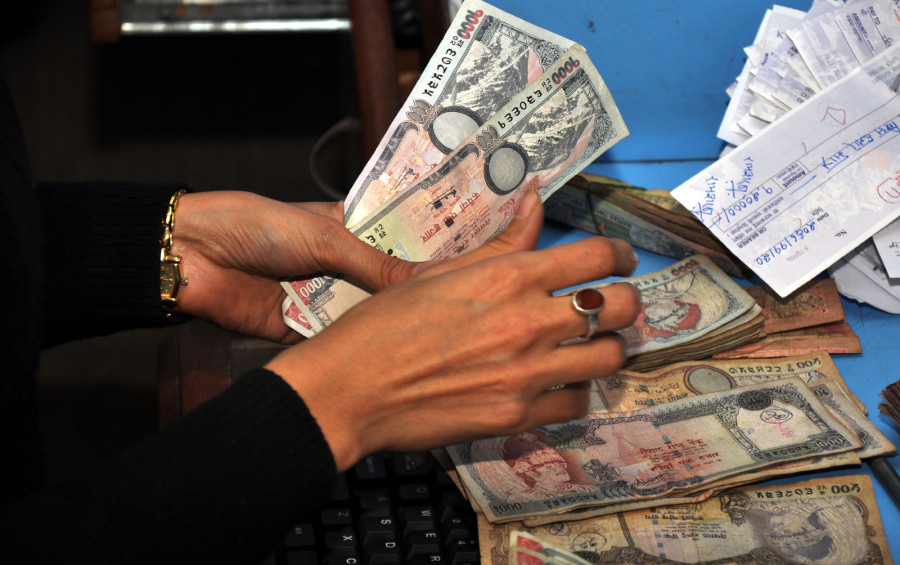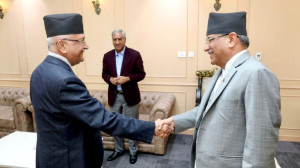 16.12°C Kathmandu
16.12°C KathmanduLife & Style
Can money buy happiness?
While money is essential, chasing after it blindly often does more harm than good.
Sujina Manandhar
As we grow up, we realise that money, though not everything, is still vital to fulfilling one’s necessities. It is a fact nobody can refute. And for this money, which may come in the form of hard-earned cash, a paycheck, or a bank balance, people work consistently and diligently.
In a bid to earn more money, many even put in way more hours at work, and some work without taking a single holiday. But when that is still not enough, many even go abroad searching for better opportunities.
This begs the question: is it really that important to earn money? Well, the obvious answer is ‘yes’. Obviously, we do need money. But the more interesting question would be—what are you willing to sacrifice to earn that money? Is money really worth neglecting your health? Is money worth losing the time you could rather spend with your loved ones? Or is money worth not having the peace of mind you so desperately need? The real question that we need to ask ourselves is—what is the true worth of money and what are we willing to sacrifice for it?
This, indeed, is a difficult question as several dimensions come into play when we look into people’s lives. After all, we all have our own stories, and how each person views money and its importance varies. Hence, what we are willing to sacrifice for money will differ, but the hard part here is understanding each person’s perspective.
For a father wanting to raise his children and give them a good life, he will break his back, working day and night without taking a break. For a son/daughter wanting to make their parents proud will often continue to work at places even if they are not happy with the work. But doing so comes with a cost.
Let’s take an example of foreign employment.
Foreign employment, though considered a great source of income, has drawbacks. While it may help the families financially, it also comes along with a never-ending cycle of discontent with what one currently has and fuels the urge to earn some more while the repercussions continue to grow.
The geographical distance between family members slowly results in emotional distance. The emotional connection once felt between the family members turns into a distant memory. In the rush of providing for a family’s physical needs, one forgets that humans have emotional needs too. And the emotional void created as a byproduct of physical separation causes a detrimental impact on the mental health of family members in and outside the country.
During counselling sessions, we frequently observe cases of teenagers having difficulties talking to their parents because, throughout their growing years, that parent was just a voice at the other end of the telephone. There are also several accounts of women feeling left behind, alone and vulnerable, to care for their young children while their husbands work abroad with dreams for a better future.
It’s not just those who remain in their home country that suffers; even people who go abroad suffer the repercussions due to loneliness, extreme stress, and lack of social support. They have difficulty adjusting to a different lifestyle, not only while living abroad but also after returning. Even when they return to their families, many migrant workers find it difficult to reconcile with family members.
To understand what drives people towards choosing to earn money over their emotional needs and attachment, it helps to remember Maslow’s Hierarchy of Needs, a famous theory in psychology. The theory suggests that only when the needs at the most basic level, like food, clothing, and security, have been fulfilled does a person strive toward attaining emotional needs.
This distress is caused by not paying attention to emotions even after fulfilling fundamental necessities, owing to a focus on materialistic acquisitions through money. As we feel that initial sense of fulfilment and satisfaction through earning money, we falsely view money as the sole source of happiness. This flawed belief misleads us to neglect many important aspects of our lives while chasing money.
So, the next time you feel that familiar urge to chase after some more money, consider asking yourself whether true satisfaction really lies in working hard day and night for materialistic gains. We know that the chase never ends. Think again, “when you reach the top, do you want to be there alone?” Reconsider the price you are paying to earn that money and think before you run after it again.

















